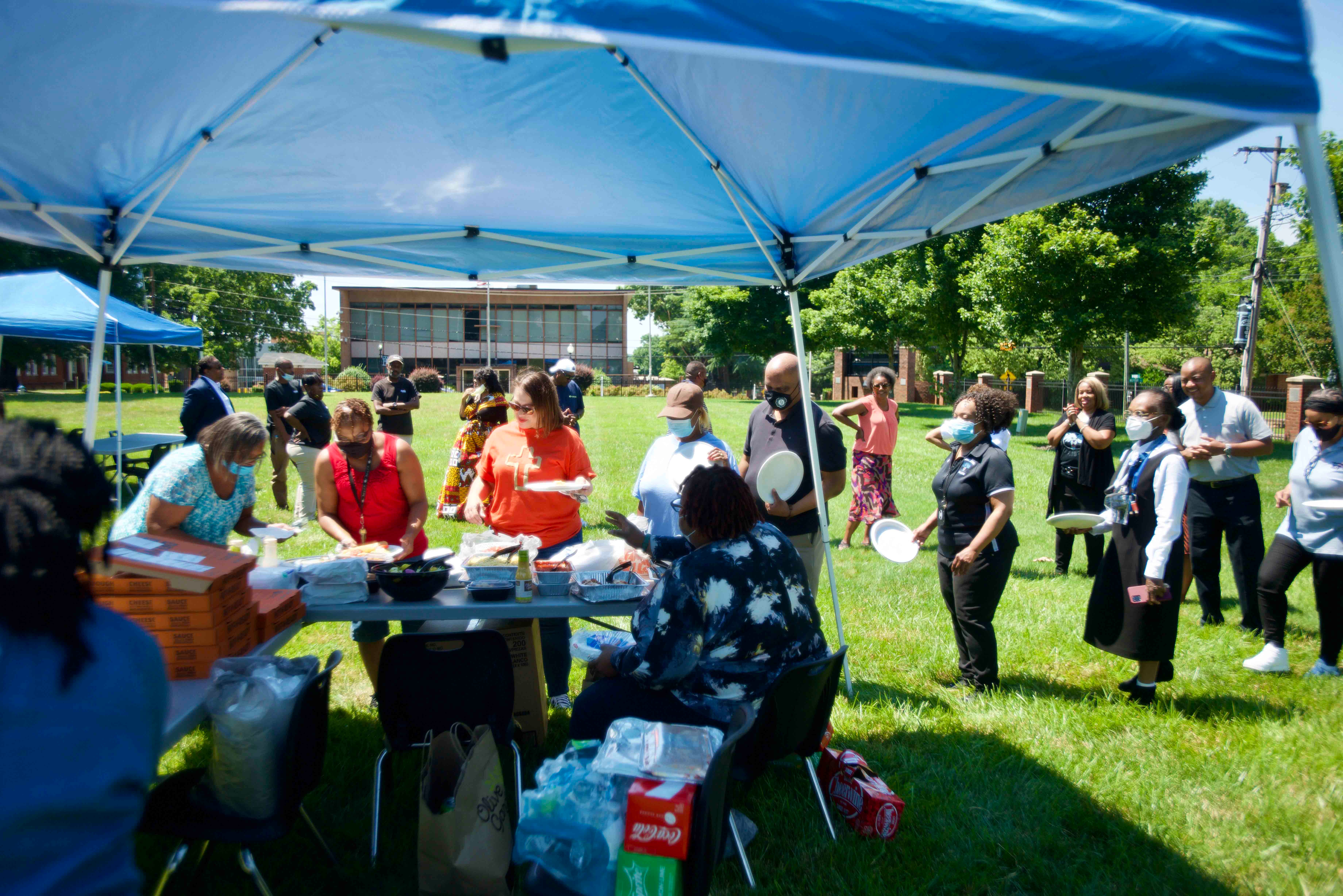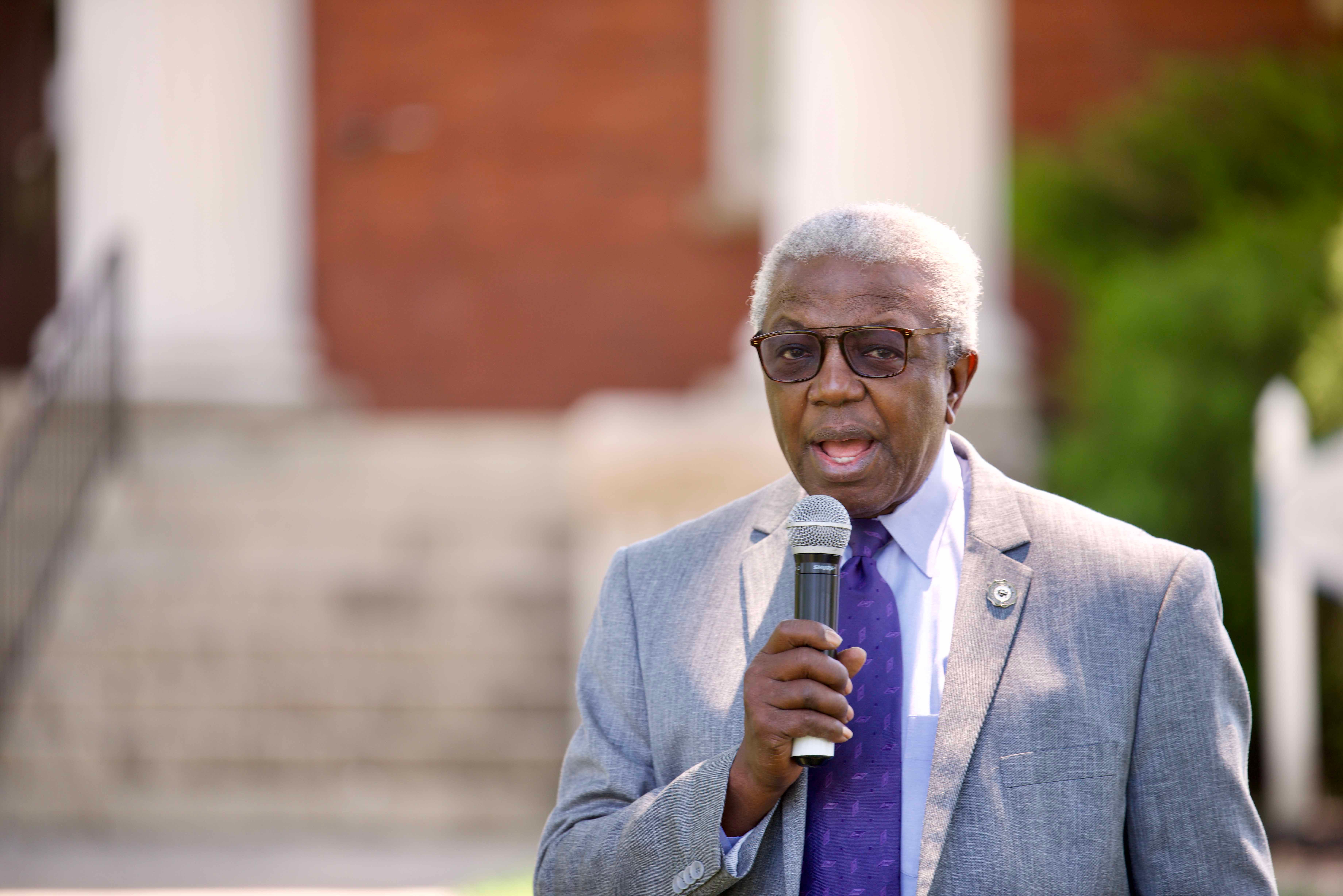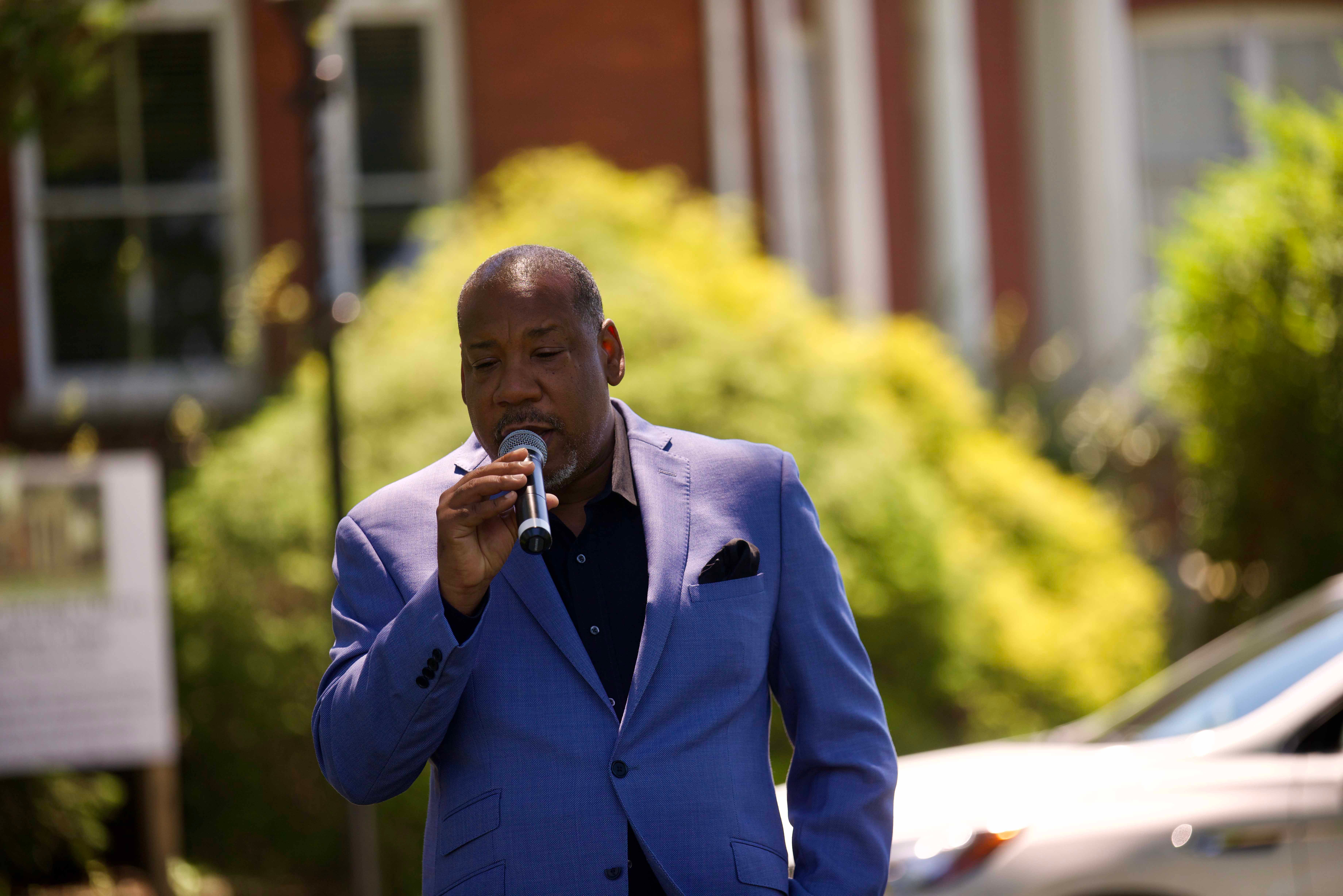Livingstone College celebrates federal recognition of Juneteenth
Published 9:00 am Saturday, June 19, 2021
SALISBURY — After Juneteenth became the newest federal holiday, Livingstone College pulled together an impromptu celebration for the occasion on Friday.
Livingstone President Jimmy Jenkins said he decided the college should do something on Friday morning while watching TV news and hearing about the importance of recently freed people eating together. He decided the historically Black college should break bread for the occasion to remind people of the connection between the end of slavery in the United States and educational opportunity.
With the spring semester over and the cafeteria closed, staff members got some food and set up on the lawn in front of Monroe Street on a perfectly clear afternoon to mark the occasion.
Jenkins said he never thought Juneteenth would be a federally recognized holiday because the day isn’t well-known.
Juneteenth refers to June 19, 1865 — when slaves in Galveston, Texas, were told about their freedom via a proclamation read aloud by Union soldiers. Former President Abraham Lincoln issued the Emancipation Proclamation in 1862, in the midst of the Civil War. The Union proclamation read in Galveston came two months after Confederate general Robert E. Lee surrendered.
President Joe Biden on Thursday signed a bill passed by both houses of Congress that makes Juneteenth a federal holiday.
Livingstone College has celebrated the holiday in the past, but it now plans to incorporate the holiday into its academic calendar as a day of service.
Livingstone Chief Operating Officer Anthony Davis on Friday recalled being an airman stationed at Seymour Johnson Air Force Base in Goldsboro in 1987 and requesting June 19 off from the non-commissioned officer in charge.
“He said, ‘For what?’ and when I told him they laughed,” Davis said. “They said, ‘We’ve never heard of that,’ and I say that’s why Black history has to be part of American history.”
Even though Juneteenth is recognized as the end of slavery, the practice was still ongoing in border states and it took a full year for the remaining enslaved people to be freed, Davis said.
After the murder of George Floyd, people are more open to hearing stories about the country’s past, he said. Increased awareness of the date after Floyd’s murder last summer led to support coalescing more quickly than for the Martin Luther King Jr. holiday, he said. While King was assassinated in 1968, the holiday was not federally recognized until 1983. It was not made a state holiday in all 50 states until 2000.
Davis said education is the true emancipator. Architects of the AME Zion Church decided to start a school 14 years after Juneteenth and founded Livingstone College.
Jenkins said the recognition of the holiday is a sign of incremental change.
“The challenge with that is because there is not sufficient rapid change America and humanity are losing out on a lot of possible advancements that could be made were we more open to opportunities and freedoms,” Jenkins said.
Jenkins said the holiday should symbolize progress toward King’s ideal of people being judged “by the content of their character and not the color of their skin.”
“Our people continue to struggle,” Jenkins told a crowd gathered Friday. “Post George Floyd era, we have to recognize that we’re still making progress but we still have a long way yet to go.”
Gregory Hill, a Livingstone librarian, said he has seen more interest in Juneteenth and racial equality in the wake of last year’s protests.
“A lot of people want to have a historical reference on emancipation,” Hill said.
Livingstone Vice President State Alexander said the recognition of the date on the federal level is more inclusive and gives the college more an opportunity to tell people about the historic moment.







